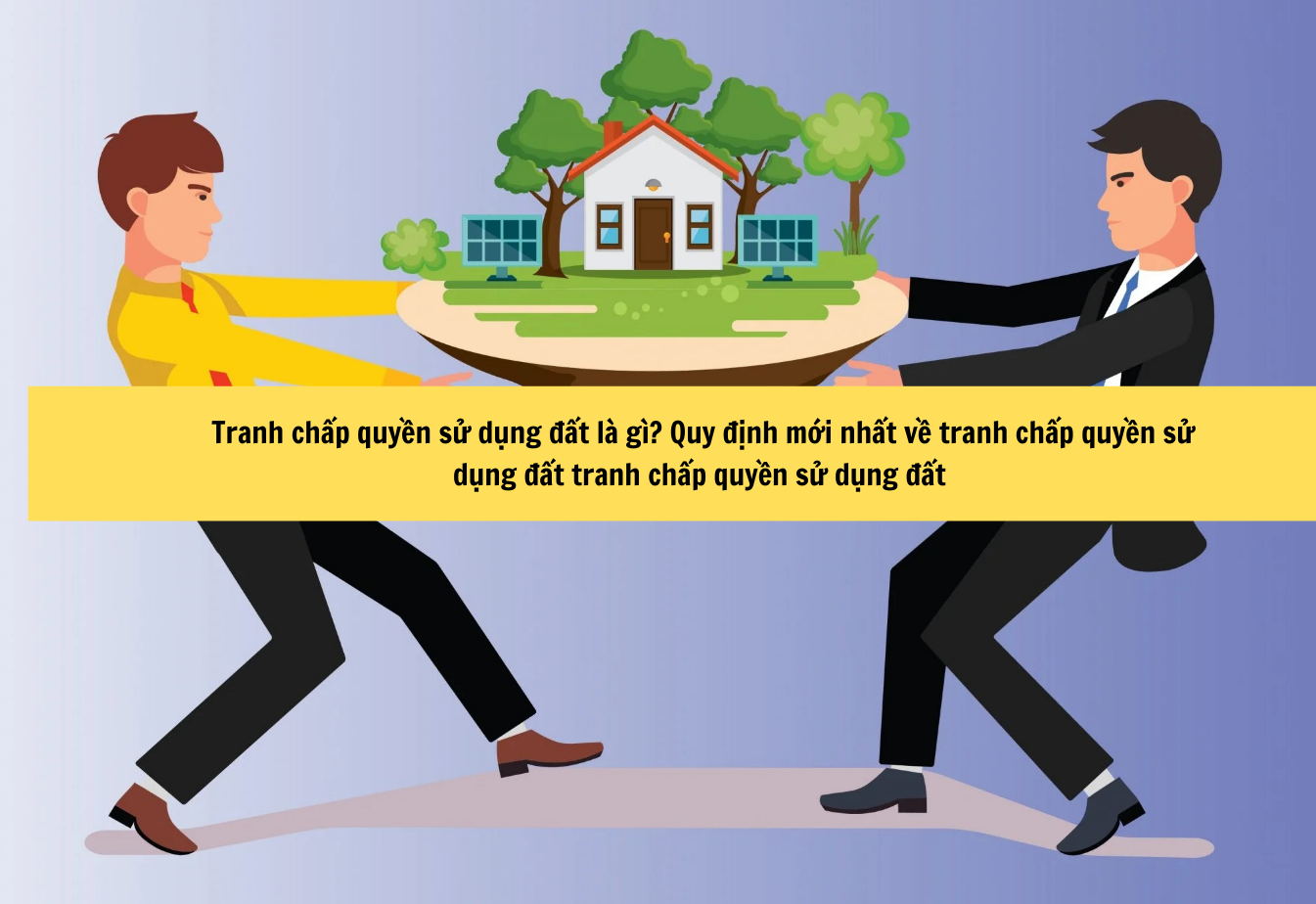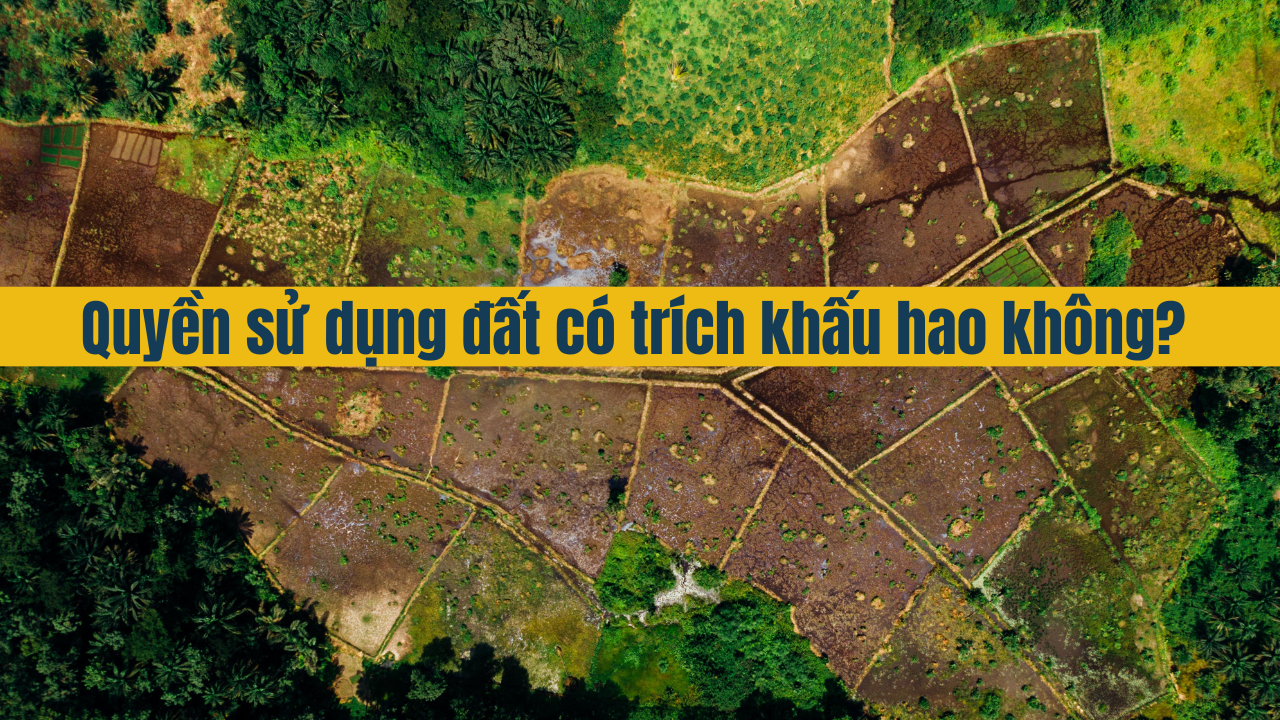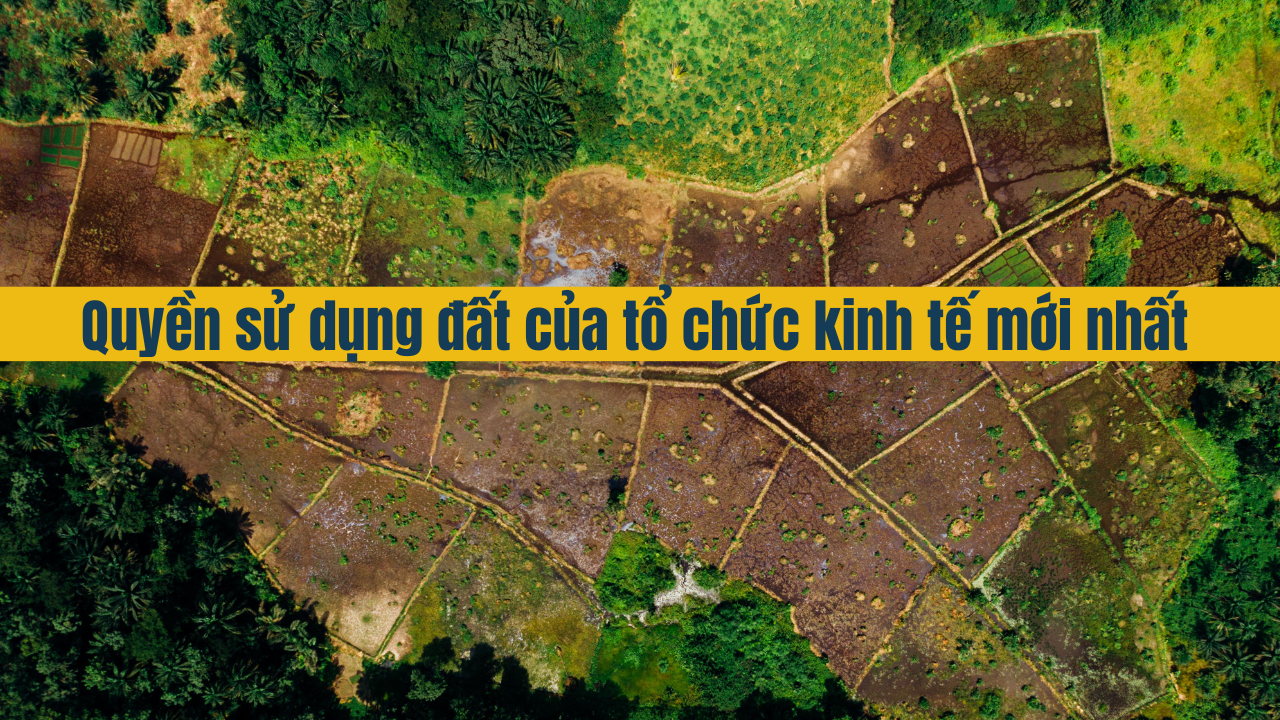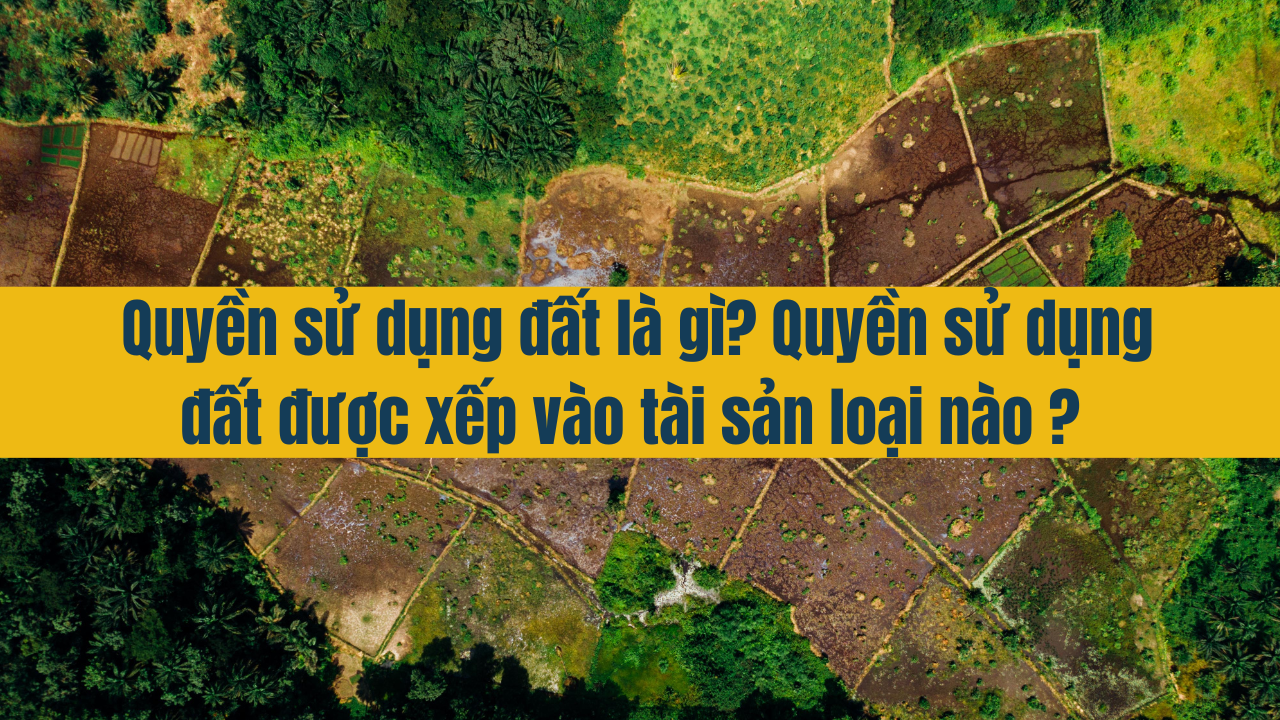 Tìm kiếm
Tìm kiếm
Chương 13 Luật đất đai 2013: Giám sát, thanh tra, giải quyết tranh chấp, khiếu nại, tố cáo và xử lý vi phạm pháp luật về đất đai
| Số hiệu: | 45/2013/QH13 | Loại văn bản: | Luật |
| Nơi ban hành: | Quốc hội | Người ký: | Nguyễn Sinh Hùng |
| Ngày ban hành: | 29/11/2013 | Ngày hiệu lực: | 01/07/2014 |
| Ngày công báo: | 31/12/2013 | Số công báo: | Từ số 1011 đến số 1012 |
| Lĩnh vực: | Bất động sản, Giao thông - Vận tải | Tình trạng: | Hết hiệu lực |
TÓM TẮT VĂN BẢN
Tăng thời hạn 30 năm giao đất nông nghiệp
Cuối tháng 11 vừa qua, Quốc hội đã ban hành Luật Đất đai 2013 với nhiều điểm mới so với Luật Đất đai 2003.
Một trong những điểm nổi bật đó là trong phần quy định giao đất, Luật mới đã không phân chia đất trồng cây lâu năm và đất trồng cây hằng năm.
Theo đó, thời hạn giao đất cho hộ gia đình, cá nhân trực tiếp sản xuất nông nghiệp được tính chung là 50 năm; trường hợp thuê đất thì thời hạn tối đa không quá 50 năm.
Thời hạn đất được giao cho tổ chức sản xuất nông lâm nghiệp, nuôi trồng thủy sản và nhằm mục đích thương mại, đầu tư… là không quá 50 năm.
Riêng các dự án vốn đầu tư lớn nhưng chậm thu hồi, dự án đầu tư vào địa bàn khó khăn thì thời hạn giao đất không quá 70 năm.
Luật Đất đai số 45/2013/QH13 sẽ có hiệu lực thi hành từ ngày 01/07/2014.
Văn bản tiếng việt
Văn bản tiếng anh
1. Quốc hội, Hội đồng nhân dân các cấp thực hiện quyền giám sát về quản lý và sử dụng đất đai theo quy định của Hiến pháp và Luật hoạt động giám sát của Quốc hội, Luật tổ chức Hội đồng nhân dân và Ủy ban nhân dân.
2. Mặt trận Tổ quốc Việt Nam, các tổ chức thành viên của Mặt trận thực hiện quyền giám sát về quản lý và sử dụng đất đai theo quy định của Hiến pháp, Luật Mặt trận Tổ quốc Việt Nam và quy định khác của pháp luật có liên quan.
1. Công dân có quyền tự mình hoặc thông qua các tổ chức đại diện thực hiện quyền giám sát và phản ánh các sai phạm trong quản lý và sử dụng đất đai.
2. Việc giám sát và phản ánh phải bảo đảm khách quan, trung thực, đúng pháp luật; không được lợi dụng quyền giám sát để khiếu nại, tố cáo không đúng quy định của pháp luật, làm mất trật tự xã hội; chịu trách nhiệm trước pháp luật về tính chính xác các thông tin do mình phản ánh.
3. Nội dung giám sát của công dân trong quản lý và sử dụng đất đai:
a) Việc lập, điều chỉnh, công bố, thực hiện quy hoạch, kế hoạch sử dụng đất;
b) Việc giao đất, cho thuê đất, cho phép chuyển mục đích sử dụng đất;
c) Việc thu hồi đất, bồi thường, hỗ trợ và tái định cư;
d) Việc đăng ký đất đai, tài sản gắn liền với đất, cấp Giấy chứng nhận quyền sử dụng đất, quyền sở hữu nhà ở và tài sản khác gắn liền với đất;
đ) Việc thu, miễn, giảm tiền sử dụng đất, tiền thuê đất, thuế liên quan đến đất đai; định giá đất;
e) Việc thực hiện các thủ tục hành chính liên quan đến quyền và nghĩa vụ của người sử dụng đất.
4. Hình thức giám sát của công dân trong quản lý và sử dụng đất đai:
a) Trực tiếp thực hiện quyền giám sát thông qua việc phản ánh, gửi đơn kiến nghị đến các cơ quan, người có thẩm quyền giải quyết;
b) Gửi đơn kiến nghị đến các tổ chức đại diện được pháp luật công nhận để các tổ chức này thực hiện việc giám sát.
5. Trách nhiệm của cơ quan nhà nước có thẩm quyền khi nhận được ý kiến của công dân và tổ chức đại diện cho người dân:
a) Kiểm tra, xử lý, trả lời bằng văn bản theo thẩm quyền;
b) Chuyển đơn đến cơ quan nhà nước có thẩm quyền để giải quyết trong trường hợp không thuộc thẩm quyền;
1. Hệ thống theo dõi và đánh giá đối với quản lý và sử dụng đất đai được sử dụng để đánh giá việc thi hành pháp luật về đất đai, hiệu quả quản lý và sử dụng đất đai, sự tác động của chính sách, pháp luật về đất đai đến kinh tế - xã hội và môi trường trên phạm vi cả nước và các địa phương.
2. Hệ thống theo dõi và đánh giá đối với quản lý và sử dụng đất đai được xây dựng dựa trên hệ thống thông tin đất đai và việc thu thập các thông tin khác từ quá trình thi hành pháp luật về đất đai trên phạm vi cả nước bao gồm:
a) Thông tin về quy hoạch, kế hoạch sử dụng đất; thống kê, kiểm kê đất đai; giá đất và thuế đất; giao đất, cho thuê đất, thu hồi đất, cho phép chuyển mục đích sử dụng đất, cấp Giấy chứng nhận quyền sử dụng đất, quyền sở hữu nhà ở và tài sản khác gắn liền với đất; việc thực hiện các dự án đầu tư có sử dụng đất; việc chấp hành pháp luật về đất đai; kiểm tra, thanh tra và xử lý vi phạm về đất đai của các cơ quan hành chính;
b) Thông tin về giải quyết tranh chấp, khiếu kiện về đất đai;
c) Thông tin từ quá trình giám sát việc thực thi pháp luật về đất đai của Quốc hội và Hội đồng nhân dân các cấp; Mặt trận Tổ quốc Việt Nam và các tổ chức thành viên của Mặt trận; các tổ chức khác có liên quan và người dân;
d) Những thông tin cần thiết phải thu nhận bằng các giải pháp công nghệ gồm chụp ảnh mặt đất từ vệ tinh, máy bay và các phương tiện bay khác; điều tra thực địa và các phương tiện kỹ thuật khác;
đ) Những thông tin cần thiết từ dữ liệu điều tra xã hội học về quản lý và sử dụng đất đai được thực hiện từ các hoạt động nghiên cứu, điều tra, khảo sát khác nhau và thực hiện điều tra xã hội học bổ sung khi cần thiết.
3. Cơ quan tài nguyên và môi trường có trách nhiệm quản lý hệ thống theo dõi và đánh giá; tổ chức thực hiện đánh giá việc thực thi pháp luật, hiệu quả quản lý và sử dụng đất đai, tác động của chính sách, pháp luật về đất đai đến kinh tế - xã hội và môi trường trên phạm vi cả nước và các địa phương; kết quả đánh giá được gửi định kỳ đến Chính phủ, Quốc hội.
4. Cơ quan nhà nước lưu giữ thông tin quy định tại khoản 2 Điều này có trách nhiệm cung cấp đầy đủ, chính xác, kịp thời các thông tin cho cơ quan quản lý hệ thống theo dõi và đánh giá. Cơ quan tài nguyên và môi trường có trách nhiệm cập nhật các thông tin trong hệ thống theo dõi, đánh giá vào hệ thống thông tin đất đai.
5. Hệ thống theo dõi và đánh giá đối với quản lý và sử dụng đất đai được công khai để các tổ chức, cá nhân tìm hiểu thông tin theo quy định của pháp luật.
6. Chính phủ quy định chi tiết về việc xây dựng và vận hành hệ thống theo dõi và đánh giá đối với quản lý và sử dụng đất đai.
1. Thanh tra chuyên ngành đất đai là hoạt động thanh tra của cơ quan nhà nước có thẩm quyền đối với cơ quan, tổ chức, cá nhân trong việc chấp hành pháp luật về đất đai, quy định về chuyên môn, kỹ thuật, quản lý thuộc lĩnh vực đất đai.
Bộ Tài nguyên và Môi trường chịu trách nhiệm chỉ đạo, tổ chức thực hiện thanh tra chuyên ngành đất đai trong cả nước.
Cơ quan quản lý đất đai ở địa phương chịu trách nhiệm tổ chức thực hiện thanh tra chuyên ngành đất đai tại địa phương.
2. Nội dung thanh tra chuyên ngành đất đai bao gồm:
a) Thanh tra việc chấp hành pháp luật về đất đai của Ủy ban nhân dân các cấp;
b) Thanh tra việc chấp hành pháp luật về đất đai của người sử dụng đất và của tổ chức, cá nhân khác có liên quan;
c) Thanh tra việc chấp hành các quy định về chuyên môn, nghiệp vụ trong lĩnh vực đất đai.
3. Thanh tra chuyên ngành đất đai có các nhiệm vụ sau đây:
a) Thanh tra việc chấp hành pháp luật của cơ quan nhà nước, người sử dụng đất trong việc quản lý và sử dụng đất đai;
b) Phát hiện, ngăn chặn và xử lý theo thẩm quyền hoặc kiến nghị cơ quan nhà nước có thẩm quyền xử lý vi phạm pháp luật về đất đai.
4. Quyền và nghĩa vụ của trưởng đoàn thanh tra, thanh tra viên, công chức làm công tác thanh tra chuyên ngành đất đai, quy trình tiến hành thanh tra chuyên ngành đất đai thực hiện theo quy định của pháp luật về thanh tra.
1. Nhà nước khuyến khích các bên tranh chấp đất đai tự hòa giải hoặc giải quyết tranh chấp đất đai thông qua hòa giải ở cơ sở.
2. Tranh chấp đất đai mà các bên tranh chấp không hòa giải được thì gửi đơn đến Ủy ban nhân dân cấp xã nơi có đất tranh chấp để hòa giải.
3. Chủ tịch Ủy ban nhân dân cấp xã có trách nhiệm tổ chức việc hòa giải tranh chấp đất đai tại địa phương mình; trong quá trình tổ chức thực hiện phải phối hợp với Ủy ban Mặt trận Tổ quốc Việt Nam cấp xã và các tổ chức thành viên của Mặt trận, các tổ chức xã hội khác. Thủ tục hòa giải tranh chấp đất đai tại Ủy ban nhân cấp xã được thực hiện trong thời hạn không quá 45 ngày, kể từ ngày nhận được đơn yêu cầu giải quyết tranh chấp đất đai.
4. Việc hòa giải phải được lập thành biên bản có chữ ký của các bên và có xác nhận hòa giải thành hoặc hòa giải không thành của Ủy ban nhân dân cấp xã. Biên bản hòa giải được gửi đến các bên tranh chấp, lưu tại Ủy ban nhân dân cấp xã nơi có đất tranh chấp.
5. Đối với trường hợp hòa giải thành mà có thay đổi hiện trạng về ranh giới, người sử dụng đất thì Ủy ban nhân dân cấp xã gửi biên bản hòa giải đến Phòng Tài nguyên và Môi trường đối với trường hợp tranh chấp đất đai giữa hộ gia đình, cá nhân, cộng đồng dân cư với nhau; gửi đến Sở Tài nguyên và Môi trường đối với các trường hợp khác.
Phòng Tài nguyên và Môi trường, Sở Tài nguyên và Môi trường trình Ủy ban nhân dân cùng cấp quyết định công nhận việc thay đổi ranh giới thửa đất và cấp mới Giấy chứng nhận quyền sử dụng đất, quyền sở hữu nhà ở và tài sản khác gắn liền với đất.
Tranh chấp đất đai đã được hòa giải tại Ủy ban nhân dân cấp xã mà không thành thì được giải quyết như sau:
1. Tranh chấp đất đai mà đương sự có Giấy chứng nhận hoặc có một trong các loại giấy tờ quy định tại Điều 100 của Luật này và tranh chấp về tài sản gắn liền với đất thì do Tòa án nhân dân giải quyết;
2. Tranh chấp đất đai mà đương sự không có Giấy chứng nhận hoặc không có một trong các loại giấy tờ quy định tại Điều 100 của Luật này thì đương sự chỉ được lựa chọn một trong hai hình thức giải quyết tranh chấp đất đai theo quy định sau đây:
a) Nộp đơn yêu cầu giải quyết tranh chấp tại Ủy ban nhân dân cấp có thẩm quyền theo quy định tại khoản 3 Điều này;
b) Khởi kiện tại Tòa án nhân dân có thẩm quyền theo quy định của pháp luật về tố tụng dân sự;
3. Trường hợp đương sự lựa chọn giải quyết tranh chấp tại Ủy ban nhân dân cấp có thẩm quyền thì việc giải quyết tranh chấp đất đai được thực hiện như sau:
a) Trường hợp tranh chấp giữa hộ gia đình, cá nhân, cộng đồng dân cư với nhau thì Chủ tịch Ủy ban nhân dân cấp huyện giải quyết; nếu không đồng ý với quyết định giải quyết thì có quyền khiếu nại đến Chủ tịch Ủy ban nhân dân cấp tỉnh hoặc khởi kiện tại Tòa án nhân dân theo quy định của pháp luật về tố tụng hành chính;
b) Trường hợp tranh chấp mà một bên tranh chấp là tổ chức, cơ sở tôn giáo, người Việt Nam định cư ở nước ngoài, doanh nghiệp có vốn đầu tư nước ngoài thì Chủ tịch Ủy ban nhân dân cấp tỉnh giải quyết; nếu không đồng ý với quyết định giải quyết thì có quyền khiếu nại đến Bộ trưởng Bộ Tài nguyên và Môi trường hoặc khởi kiện tại Tòa án nhân dân theo quy định của pháp luật về tố tụng hành chính;
4. Người có thẩm quyền giải quyết tranh chấp đất đai tại khoản 3 Điều này phải ra quyết định giải quyết tranh chấp. Quyết định giải quyết tranh chấp có hiệu lực thi hành phải được các bên tranh chấp nghiêm chỉnh chấp hành. Trường hợp các bên không chấp hành sẽ bị cưỡng chế thi hành.
1. Người sử dụng đất, người có quyền lợi và nghĩa vụ liên quan đến sử dụng đất có quyền khiếu nại, khởi kiện quyết định hành chính hoặc hành vi hành chính về quản lý đất đai.
2. Trình tự, thủ tục giải quyết khiếu nại quyết định hành chính, hành vi hành chính về đất đai thực hiện theo quy định của pháp luật về khiếu nại. Trình tự, thủ tục giải quyết khiếu kiện quyết định hành chính, hành vi hành chính về đất đai thực hiện theo quy định của pháp luật về tố tụng hành chính.
1. Người có hành vi vi phạm pháp luật về đất đai thì tùy theo tính chất, mức độ vi phạm mà bị xử lý hành chính hoặc bị truy cứu trách nhiệm hình sự theo quy định của pháp luật.
2. Người có hành vi vi phạm pháp luật về đất đai mà gây thiệt hại cho Nhà nước, cho người khác, ngoài việc bị xử lý theo quy định của pháp luật còn phải bồi thường theo mức thiệt hại thực tế cho Nhà nước hoặc cho người bị thiệt hại.
1. Người có hành vi vi phạm pháp luật về đất đai khi thi hành công vụ thì tùy theo tính chất, mức độ vi phạm mà bị xử lý kỷ luật hoặc bị truy cứu trách nhiệm hình sự theo quy định của pháp luật đối với các hành vi vi phạm sau đây:
a) Lợi dụng chức vụ, quyền hạn làm trái với quy định của pháp luật trong giao đất, cho thuê đất, chuyển mục đích sử dụng đất, thu hồi đất, bồi thường, hỗ trợ, tái định cư, chuyển quyền sử dụng đất, thực hiện quy hoạch, kế hoạch sử dụng đất, xác định nghĩa vụ tài chính về đất đai, quản lý hồ sơ địa chính, ra quyết định hành chính trong quản lý đất đai;
b) Thiếu trách nhiệm trong quản lý để xảy ra vi phạm pháp luật về đất đai hoặc có hành vi khác gây thiệt hại đến tài nguyên đất đai, quyền và nghĩa vụ của người sử dụng đất;
c) Vi phạm quy định về lấy ý kiến, công bố, công khai thông tin; vi phạm quy định trình tự, thủ tục hành chính; vi phạm quy định về báo cáo trong quản lý đất đai.
1. Chủ tịch Ủy ban nhân dân các cấp có trách nhiệm phát hiện, ngăn chặn và xử lý kịp thời những vi phạm pháp luật về quản lý và sử dụng đất đai tại địa phương.
2. Chủ tịch Ủy ban nhân dân cấp xã có trách nhiệm phát hiện, ngăn chặn và xử lý kịp thời việc chuyển quyền sử dụng đất trái phép, chuyển mục đích sử dụng đất trái phép; phát hiện, áp dụng biện pháp ngăn chặn và xử lý kịp thời việc xây dựng các công trình trên đất lấn, chiếm, đất sử dụng không đúng mục đích ở địa phương và buộc người có hành vi vi phạm khôi phục lại tình trạng của đất trước khi vi phạm.
1. Tổ chức, cá nhân khi phát hiện công chức, viên chức thuộc cơ quan quản lý đất đai các cấp, công chức địa chính xã, phường, thị trấn vi phạm các quy định về trình tự, thủ tục, thời hạn đối với việc giao đất, cho thuê đất, cho phép chuyển mục đích sử dụng đất, thu hồi đất, làm thủ tục thực hiện quyền của người sử dụng đất, cấp Giấy chứng nhận thì có quyền gửi đơn kiến nghị đến người có thẩm quyền theo quy định sau đây:
a) Đối với vi phạm của công chức địa chính xã, phường, thị trấn thì gửi kiến nghị đến Chủ tịch Ủy ban nhân dân cấp xã;
b) Đối với những vi phạm của công chức, viên chức thuộc cơ quan quản lý đất đai cấp nào thì gửi kiến nghị đến thủ trưởng cơ quan quản lý đất đai cấp đó;
c) Đối với vi phạm của thủ trưởng cơ quan quản lý đất đai thì gửi kiến nghị đến Chủ tịch Ủy ban nhân dân cùng cấp.
2. Trong thời hạn không quá 30 ngày, kể từ ngày nhận được đơn kiến nghị, Chủ tịch Ủy ban nhân dân hoặc thủ trưởng cơ quan quản lý đất đai quy định tại khoản 1 Điều này có trách nhiệm xem xét, giải quyết và thông báo cho người có kiến nghị biết.
SUPERVISION, INSPECTION, SETTLEMENT OF DISPUTES, COMPLAINTS, DENUNCIATIONS AND HANDLING OF VIOLATIONS OF LAND LAW
Section 1. SUPERVISION, MONITORING AND EVALUATION OF LAND MANAGEMENT AND USE
Article 198. Oversight by the National Assembly, People’s Councils at all levels, Vietnam Fatherland Front and its member organizations of the land management and use
1. The National Assembly and People’s Councils at all levels shall exercise the power to oversee the land management and use in accordance with the Constitution and the Law on Oversight Activities of the National Assembly and the Law on Organization of the People’s Councils and People’s Committees.
2. The Vietnam Fatherland Front and its member organizations shall exercise the power to supervise the land management and use in accordance with the Constitution, the Law on the Vietnam Fatherland Front and other relevant laws.
Article 199. Supervision by citizens of land management and use
1. Citizens have the right to supervise and report on wrongdoings and violations in the land management and use by themselves or through representative organizations.
2. The supervision and reporting must ensure objectivity, honesty and lawfulness. Citizens may not abuse the right to supervise and report to lodge complaints and denunciations illegally or negatively affect social order. Citizens shall take responsibility before law for the accuracy of the information they have reported.
3. The contents of supervision of the land management and use by citizens include:
a/ Formulation, adjustment, publicization and implementation of land use master plans and plans;
b/ Land allocation, land lease, and permission for change of land use purpose;
c/ Land expropriation, compensation, support and resettlement;
d/ Registration of land and land-attached assets, and grant of the certificate of land use rights and ownership of houses and other land-attached assets;
e/ Collection of, exemption from, or reduction of, land use levy, land rental and land-related taxes, and land valuation;
f/ Implementation of administrative procedures related to the rights and obligations of land users.
4. The methods of supervision of the land management and use by citizens include:
a/ Directly exercising the right to supervision through reporting and sending petitions to agencies or persons with settling competence;
b/ Sending petitions to the lawful representative organizations for these organizations to conduct the supervision.
5. Responsibilities of competent state agencies upon receiving opinions from citizens and representative organizations:
a/ To examine, settle and respond to the opinions in writing according to their competence;
b/ To forward the petitions to competent state agencies for settlement, for cases falling beyond their competence;
c/ To notify the results to the reporting organizations or individuals.
Article 200. System of monitoring and evaluation of the land management and use
1. The system of monitoring and evaluation of the land management and use shall be used to evaluate the implementation of the land law, the efficiency of land management and use, and the impacts of land policy and law on the economy, society and environment on both national and local scales.
2. The system of monitoring and evaluation of the land management and use shall be developed based on the land information system and the collection of other information during the implementation of the land law throughout the country, including:
a/ Information on land use master plans and plans, land statistics and inventories, land prices and land taxes; land allocation, land lease, land expropriation, permission for change of land use purpose, grant of the certificate of land use rights and ownership of houses and other land-attached assets; implementation of investment projects using land; observance of the land law; examination, inspection and handling of land-related violations of administrative agencies;
b/ Information on the settlement of disputes and lawsuits over land;
c/ Information from the supervision process of the land law implementation of the National Assembly, People’s Councils at all levels, Vietnam Fatherland Front and its member organizations, other related organizations and people;
d/ Necessary information which needs to be collected by technology solutions including aerial photography from satellites, aircraft and other flying craft, field surveys and other Technical equipment;
dd/ Necessary information from the sociological survey data on land management and use which is obtained from different researches, investigations, surveys and performance of additional sociological investigations when necessary.
3. The agency in charge of natural resources and environment shall manage the monitoring and evaluation system, conduct evaluation of the land law implementation, the efficiency in the land management and use and the impacts of land policy and law on the economy, society and environment on both national and local levels. The evaluation results shall be sent periodically to the Government and the National Assembly.
4. The state agency which archives the information specified in Clause 2 of this Article shall provide information sufficiently, accurately and timely to the agency managing the monitoring and evaluation system. The agency in charge of natural resources and environment shall update the information in the monitoring and evaluation system into the land information system.
5. The monitoring and evaluation system on the land management and use shall be made public for information search by organizations and individuals in accordance with law.
6. The Government shall prescribe in detail the creation and operation of the monitoring and evaluation system on land management and use.
Section 2. INSPECTION, SETTLEMENT OF DISPUTES, COMPLAINTS AND DENUNCIATIONS AND TREATMENT OF VIOLATIONS OF LAND LAW
Article 201. Specialized land inspection
1. Specialized land inspection means inspection activities earned out by competent state agencies toward agencies, organizations and individuals regarding their observance of the land law and professional, technical and management regulations in the field of land.
The Ministry of Natural Resources and Environment shall direct and organize the implementation of specialized land inspection throughout the country.
Local land administration agencies shall organize specialized land inspections in localities.
2. The specialized land inspection includes the following contents:
a/ Inspection of the observance of the land law by People’s Committees at all levels;
b/ Inspection of the observance of the land law by land users and other related organizations and individuals;
c/ Inspection of the observance of professional and technical regulations in the field of land.
3. Specialized land inspectors have the following tasks:
a/ To inspect the observance of the land law by state agencies and land users in land management and use;
b/ To detect, prevent and handle violations of the land law according to their competence or propose the settlement of violations to competent state agencies.
4. The powers and obligations of leaders of inspection teams, inspectors, civil servants performing specialized land inspection, and the procedures for specialized land inspection comply with the inspection law.
Article 202. Conciliation of land disputes
1. The State shall encourage the disputing parties to conciliate themselves or have theừ land disputes settled through grassroots conciliation.
2. In case the self-reconciliation fails, the parties may send a petition to the commune-level People’s Committee of the locality where the disputed land is located, for reconciliation.
3. Commune-level People’s Committee chairpersons shall organize conciliation of land disputes in their localities. In the process of conciliation, they shall coordinate with the commune-level Vietnam Fatherland Front Committee and its member organizations and other social organizations. The conciliation procedures carried out at the commune-level People’s Committees shall be completed within 45 days from the date the commune-level People’s Committees receive a petition for settlement of land dispute.
4. The conciliation process must be recorded in a written record with signatures of all parties and certified by the commune-level People’s Committee on the result, either a successful or unsuccessful conciliation. The conciliation minutes shall then be sent to the involved parties and archived at the commune-level People’s Committee concerned.
5. In case of successful conciliation which results in changes in the boundaries or land users, the commune-level People’s Committee shall send the conciliation minutes to the district-level Division of Natural Resources and Environment, for land disputes among households, individuals and communities, or to the provincial-level Department of Natural Resources and Environment, for other land disputes.
The district-level Division of Natural Resources and Environment or the provincial-level Department of Natural Resources and Environment shall submit the case to the People’s Committee of the same level for decision on recognizing the change in boundaries or renewing the certificate of land use rights, houses and other land-related assets ownership.
Article 203. Authority to settle land disputes
If the conciliation at a commune-level People’s Committee fails, a land dispute shall be settled as follows:
1. The land dispute in which the concerned party possesses a certificate or any of the papers prescribed in Article 100 of this Law and the dispute over land-attached assets shall be settled by the People’s Court;
2. For the land dispute in which the concerned party does not possess a certificate or any of the papers prescribed in Article 100 of this Law, the parties may choose between the following two options of settlement:
a/ Filing a written request for dispute settlement with a competent People’s Committee as prescribed in Clause 3 of this Article;
b/ Filing a lawsuit with a competent People’s Court in accordance with the law on civil procedures;
3. In case the concerned parties choose the option of settlement at a competent People’s Committee, the settlement is as follows:
a/ In case the dispute occurs among households, individuals and communities, the chairperson of the district-level People Committee is responsible for the settlement. If the concerned parties disagree with the settlement decision, they are entitled to lodge a complaint with the chairperson of the provincial-level People’s Committee or to file a lawsuit at a People’s Court in accordance with the law on administrative procedures;
b/ In case the dispute involves one party being an organization, a religious institution, an overseas Vietnamese or a foreign-invested enterprise, the chairperson of the provincial-level People’s Committee is responsible for the settlement. If the concerned parties disagree with the settlement decision, they are entitled to lodge a complaint with the Minister of Natural Resources and Environment or to file a lawsuit with a People’s Court in accordance with the law on administrative procedures;
4. The person having competence to settle the land dispute as prescribed in Clause 3 of this Article shall issue a settlement decision. The legally effective decision on dispute settlement must be strictly abided by the concerned parties. If the parties fail to comply, the decision shall be enforced.
Article 204. Settlement of complaints and lawsuits related to land
1. Land users and people who have land use-related rights and obligations are entitled to lodge complaints about, or file lawsuits against, administrative decisions or administrative acts in land management.
2. The order and procedures for settling complaints about administrative decisions or administrative acts related to land comply with the law on complaints. The order and procedures for settling lawsuits against administrative decisions or administrative acts related to land comply with the law on administrative procedures.
Article 205. Settlement of denunciations about land
1. Individuals are entitled to denounce violations of the law on land management and use.
2. The settlement of denunciations about violations of the law on land management and use shall comply with the law on denunciations.
Article 206. Handling of violators of land law
1. Violators of the land law shall, depending on the nature and seriousness of their violations, be administratively sanctioned or examined for penal liability in accordance with law.
2. Those who commit violations of the land law which cause damage to the State or other people, shall be handled in accordance with law and pay compensation for the actual damage caused to the State or to other people.
Article 207. Handling of persons who commit violations of land law while on duty in the field of land
1. Those who commit violations of the land law while on duty shall, depending on the nature and seriousness of their violations, be disciplined or examined for penal liability in accordance with law for the following violations:
a/ Abusing positions and powers to commit illegal acts in land allocation, land lease, change of land use purpose, land expropriation, compensation, support, resettlement, transfer of land use rights, implementation of land use master plans and plans, determination of financial obligations related to land, management of cadastral records, or issuance of administrative decisions in land management;
b/ Lacking responsibility in management which lets violations of land law occur, or committing other acts which cause damage to land resources or the rights and obligations of land users;
c/ Violating regulations on consultation, publicization and publicity of information; violating regulations on administrative order and procedures; violating reporting regulations in land management.
2. The Government shall detail this Article.
Article 208. Responsibilities of chairpersons of People’s Committees at all levels in detecting, preventing and handling violations of law on land management and use
1. Chairpersons of the People’s Committees at all levels shall detect, prevent and promptly handle violations of the law on land management and use in localities.
2. Chairpersons of commune-level People’s Committees shall detect, prevent and promptly handle the illegal transfer of land use rights and change of land use purpose; detect, prevent and promptly handle the construction of facilities on encroached land, occupied land or the land used for improper purposes in their localities, and force the violators to restore the land to the conditions as before the violation was committed.
Article 209. Receipt and handling of responsibility of heads, civil servants or public employees working at land administration agencies at all levels and commune-level cadastral civil servants who violate the order of carrying out administrative procedures
1. Organizations or individuals that detect civil servants or public employees of the land administration agencies at all levels or commune-level cadastral civil servants violating regulations on the order and procedures and terms for land allocation, land lease, permission for change of land use purpose, land expropriation, performance of procedures for exercising the rights of land users, or grant of the certificate, may send a petition to the following competent persons:
a/ For violations committed by commune-level cadastral civil servants, the petition shall be sent to the chairperson of the commune-level People’s Committee;
b/ For violations committed by civil servants or public employees working at a land administration agency, the petition shall be sent to the director of the land administration agency concerned;
c/ For violations committed by the director of a land administration agency, the petition shall be sent to the chairperson of the People’s Committee of the same level.
2. Within 30 days after receiving a petition, the chairperson of the People’s Committee or the head of the land administration agency prescribed in Clause 1 of this Article shall consider and settle the petition and notify the result to the petitioner.
Văn bản liên quan
Cập nhật
Điều 11. Căn cứ để xác định loại đất
Điều 24. Cơ quan quản lý đất đai
Điều 38. Quy hoạch, kế hoạch sử dụng đất cấp quốc gia
Điều 41. Quy hoạch, kế hoạch sử dụng đất quốc phòng, an ninh
Điều 47. Tư vấn lập quy hoạch, kế hoạch sử dụng đất
Điều 59. Thẩm quyền giao đất, cho thuê đất, cho phép chuyển mục đích sử dụng đất
Điều 64. Thu hồi đất do vi phạm pháp luật về đất đai
Điều 71. Cưỡng chế thực hiện quyết định thu hồi đất
Điều 95. Đăng ký đất đai, nhà ở và tài sản khác gắn liền với đất
MỤC 2. CẤP GIẤY CHỨNG NHẬN QUYỀN SỬ DỤNG ĐẤT, QUYỀN SỞ HỮU NHÀ Ở VÀ TÀI SẢN KHÁC GẮN LIỀN VỚI ĐẤT
Điều 103. Xác định diện tích đất ở đối với trường hợp có vườn, ao
Điều 104. Cấp Giấy chứng nhận đối với tài sản gắn liền với đất
Điều 106. Đính chính, thu hồi Giấy chứng nhận đã cấp
Điều 114. Bảng giá đất và giá đất cụ thể
Điều 130. Hạn mức nhận chuyển quyền sử dụng đất nông nghiệp của hộ gia đình, cá nhân
Điều 139. Đất có mặt nước nội địa
Điều 141. Đất bãi bồi ven sông, ven biển
Điều 145. Đất xây dựng khu chung cư
Điều 148. Đất sử dụng vào mục đích quốc phòng, an ninh
Điều 149. Đất khu công nghiệp, khu chế xuất, cụm công nghiệp, làng nghề
Điều 150. Đất sử dụng cho khu công nghệ cao
Điều 151. Đất sử dụng cho khu kinh tế
Điều 156. Đất cảng hàng không, sân bay dân dụng
Điều 157. Đất xây dựng các công trình công cộng có hành lang bảo vệ an toàn
Điều 158. Đất có di tích lịch sử - văn hóa, danh lam thắng cảnh
Điều 161. Đất xây dựng công trình ngầm
Điều 164. Quản lý đất chưa sử dụng
Điều 165. Đưa đất chưa sử dụng vào sử dụng
Điều 169. Nhận quyền sử dụng đất
Điều 192. Trường hợp hộ gia đình, cá nhân chuyển nhượng, tặng cho quyền sử dụng đất có điều kiện
Điều 195. Các thủ tục hành chính về đất đai
Điều 196. Công khai thủ tục hành chính về đất đai
Điều 200. Hệ thống theo dõi và đánh giá đối với quản lý và sử dụng đất đai
Điều 202. Hòa giải tranh chấp đất đai
Điều 64. Thu hồi đất do vi phạm pháp luật về đất đai
MỤC 2. BỒI THƯỜNG VỀ ĐẤT, HỖ TRỢ VÀ TÁI ĐỊNH CƯ
Điều 79. Bồi thường về đất khi Nhà nước thu hồi đất ở
Điều 83. Hỗ trợ khi Nhà nước thu hồi đất
Điều 85. Lập và thực hiện dự án tái định cư
Điều 86. Bố trí tái định cư cho người có đất ở thu hồi mà phải di chuyển chỗ ở
Điều 87. Bồi thường, hỗ trợ, tái định cư đối với các trường hợp đặc biệt
Điều 89. Bồi thường thiệt hại về nhà, công trình xây dựng trên đất khi Nhà nước thu hồi đất
MỤC 1. THU HỒI ĐẤT, TRƯNG DỤNG ĐẤT
Điều 64. Thu hồi đất do vi phạm pháp luật về đất đai
Điều 95. Đăng ký đất đai, nhà ở và tài sản khác gắn liền với đất
Điều 114. Bảng giá đất và giá đất cụ thể
Điều 115. Tư vấn xác định giá đất
MỤC 3. ĐẤU GIÁ QUYỀN SỬ DỤNG ĐẤT
Điều 126. Đất sử dụng có thời hạn
Điều 139. Đất có mặt nước nội địa
Điều 179. Quyền và nghĩa vụ của hộ gia đình, cá nhân sử dụng đất
Điều 23. Trách nhiệm quản lý nhà nước về đất đai
Điều 60. Xử lý trường hợp giao đất, cho thuê đất trước ngày Luật này có hiệu lực thi hành
Điều 108. Căn cứ, thời điểm tính tiền sử dụng đất, tiền thuê đất
Điều 109. Nộp tiền sử dụng đất, tiền thuê đất khi chuyển mục đích sử dụng đất, gia hạn sử dụng đất
Điều 141. Đất bãi bồi ven sông, ven biển
Điều 151. Đất sử dụng cho khu kinh tế
Điều 156. Đất cảng hàng không, sân bay dân dụng
Bài viết liên quan
Quyền của người sử dụng đất qua các thời kỳ thay đổi ra sao?

Quyền của người sử dụng đất qua các thời kỳ thay đổi ra sao?
Đất đai thuộc sở hữu toàn dân do Nhà nước đại diện chủ sở hữu và thống nhất quản lý. Nhà nước trao quyền sử dụng đất cho người sử dụng đất theo quy định. Là lĩnh vực được nhà nước quan tâm nhất từ trước đến nay. Vậy thì Luật đất đai qua từng thời kỳ được quy định như thế nào và được thay đổi ra sao. Qua bài viết cùng tìm hiểu vấn đề này. 27/12/2024Ai là người sử dụng đất theo quy định mới nhất 2025?

Ai là người sử dụng đất theo quy định mới nhất 2025?
Người sử dụng đất là người được Nhà nước trao quyền sử dụng đất bằng các hình thức như giao đất, cho thuê đất, công nhận quyền sử dụng đất. Vậy, người sử dụng đất gồm những đối tượng nào? Người sử dụng đất có quyền gì? 27/12/2024Quy định mới nhất 2025 về quyền và nghĩa vụ của người sử dụng đất

Quy định mới nhất 2025 về quyền và nghĩa vụ của người sử dụng đất
Người sử dụng đất là người được Nhà nước trao quyền sử dụng đất bằng các hình thức như giao đất, cho thuê đất, công nhận quyền sử dụng đất. Vậy, người sử dụng đất gồm những đối tượng nào? Người sử dụng đất có quyền gì? 27/12/2024Tranh chấp quyền sử dụng đất là gì? Quy định mới nhất 2025 về tranh chấp quyền sử dụng đất tranh chấp quyền sử dụng đất

Tranh chấp quyền sử dụng đất là gì? Quy định mới nhất 2025 về tranh chấp quyền sử dụng đất tranh chấp quyền sử dụng đất
Tranh chấp quyền sử dụng đất là sự xung đột hoặc tranh cãi giữa các bên liên quan về quyền sử dụng, quản lý, hoặc sở hữu đất đai. Điều này có thể liên quan đến việc xác định ai là người có quyền sử dụng đất, quyền sở hữu đất, hoặc quyền sử dụng đất theo các quy định pháp luật. Pháp luật quy định như thế nào về vấn đề tranh chấp này? Hãy cùng tìm hiểu các quy định về tranh chấp đất đai trong bài viết dưới đây. 27/12/2024Quyền sử dụng đất có trích khấu hao không?

Quyền sử dụng đất có trích khấu hao không?
Quyền sử dụng đất có bị khấu hao như các tài sản khác hay không? Câu trả lời phụ thuộc vào nhiều yếu tố, đặc biệt là các quy định pháp lý và cách thức tổ chức khai thác đất đai. Trong bài viết này, chúng ta sẽ cùng tìm hiểu về những quy định liên quan đến việc khấu hao quyền sử dụng đất, cũng như sự khác biệt giữa quyền sử dụng đất và các loại tài sản khác trong hệ thống kế toán. 06/12/2024Quyền sử dụng đất của tổ chức kinh tế mới nhất 2025

Quyền sử dụng đất của tổ chức kinh tế mới nhất 2025
Việc nghiên cứu quyền sử dụng đất của tổ chức kinh tế sẽ tập trung vào các vấn đề mới như cải cách các quy trình giao đất, cho thuê đất, và việc áp dụng công nghệ trong quản lý đất đai. Điều này sẽ không chỉ ảnh hưởng đến hoạt động kinh doanh của các tổ chức mà còn tác động sâu rộng đến chiến lược phát triển kinh tế của đất nước. Vì vậy, cùng xem hết bài viết để biết thêm thông tin về quyền sử dụng đất của tổ chức kinh tế mới nhất hiện nay. 06/12/2024Tài sản gắn liền với đất gồm những loại nào? 02 tài sản gắn liền với đất được cấp sổ đỏ mới nhất 2025

Tài sản gắn liền với đất gồm những loại nào? 02 tài sản gắn liền với đất được cấp sổ đỏ mới nhất 2025
Tài sản gắn liền với đất là những tài sản không thể tách rời khỏi đất đai, thường có giá trị lớn và chịu sự quản lý chặt chẽ của pháp luật. Những tài sản này có thể được chuyển nhượng, cho thuê, thế chấp và có ảnh hưởng trực tiếp đến quyền sử dụng đất của chủ sở hữu. Cùng với sự phát triển của các quy định pháp lý, việc cấp Giấy chứng nhận quyền sử dụng đất (sổ đỏ) đối với những tài sản này cũng ngày càng rõ ràng hơn. Vậy, trong năm 2025, những tài sản gắn liền với đất nào sẽ được cấp sổ đỏ theo quy định mới nhất? Cùng tìm hiểu 02 loại tài sản gắn liền với đất được cấp sổ đỏ hiện nay. 09/12/2024Chuyển quyền sử dụng đất rồi có đòi lại được không?

Chuyển quyền sử dụng đất rồi có đòi lại được không?
Quyền của người sử dụng đất nói chung và chuyển quyền sử dụng đất nói riêng của người sử dụng đất được quy định tại Luật Đất đai qua các thời kỳ, thể hiện chính sách về đất đai của Đảng và Nhà nước phù hợp với yêu cầu trong từng giai đoạn lịch sử nước ta. Vậy chuyển quyền sử dụng đất rồi có đòi lại được không? Bài viết sau đây sẽ làm rõ về các vấn đề này. 23/01/2025Quyền sử dụng đất là gì? Quyền sử dụng đất được xếp vào tài sản loại nào?

Quyền sử dụng đất là gì? Quyền sử dụng đất được xếp vào tài sản loại nào?
Quyền sử dụng đất là gì và quyền sử dụng đất được xếp vào tài sản loại nào? Quyền sử dụng đất không chỉ liên quan đến việc sử dụng một diện tích đất mà còn gắn liền với những quyền lợi, nghĩa vụ pháp lý và các giao dịch tài chính. Việc xác định quyền sử dụng đất thuộc loại tài sản nào cũng đóng vai trò quan trọng trong việc áp dụng pháp luật, bảo vệ quyền lợi hợp pháp của người sử dụng đất. 06/12/2024Chuyển quyền sử dụng đất có hiệu lực khi nào?


 Luật đất đai 2013 (Bản Word)
Luật đất đai 2013 (Bản Word)
 Luật đất đai 2013 (Bản Pdf)
Luật đất đai 2013 (Bản Pdf)